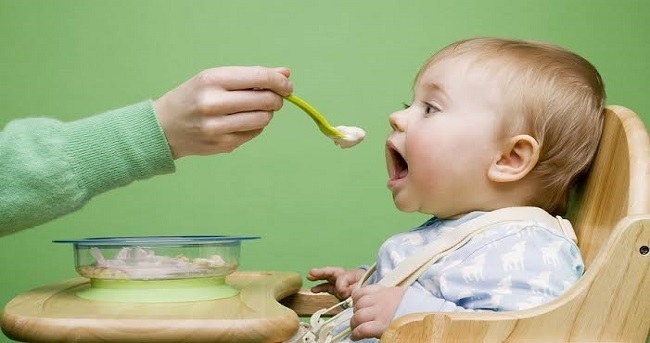Most people, especially parents, have started to recognize the importance of organic purchases. To give our babies the healthiest and high-quality foods, we are willing to pay a little more to afford what’s in the market.
Organic food reduces children’s exposure to toxins and insecticides found in food produce. Most farmers use pesticides and other chemicals on crops. Many of the chemicals used in farms can disrupt the baby’s hormonal system and sometimes even mimic the body’s natural hormones like testosterone and estrogen.
Infants and young children are susceptible to pesticide toxicity, and since we can’t really limit our children’s exposure to environmental toxins, we can opt to feed them organic food instead.
Organic baby food has lower levels of pesticides, and it helps limit your baby’s exposure to toxic chemicals and hormone disruptors.
In general, it’s always better to avoid foods high in artificial ingredients or added salt, particularly for kids. When your baby is ready for weaning, this means that they are starting to develop taste, in which case its best to get them accustomed to high-quality organic food instead of poor-quality processed foods.
Whatever you feed your baby when you start weaning becomes an ingrained habit later in life when it comes to the foods they eat.
Organic food isn’t just nutritious and safe for your baby’s health, but the entire family as well. Buying organic food is the best decision for your family’s general health.
Because their immune system and gastrointestinal tract are still developing, babies absorb chemicals and pesticides more easily. This means that they are also less capable of breaking down toxins in their bodies.
These chemicals don’t only come from contaminated fruits but from milk and water, as well. These chemicals can also find their way into your baby’s mouth when he puts something dirty in his mouth.
Compared to conventional formulas, organic baby food is better because they contain higher amounts of essential nutrients, which will aid your baby’s brain development and also protect him against several chronic health issues and inflammation.
Organic milk, for example, contains omega-three fatty acids, which are helpful for brain health. Hence, with baby portions of organic milk, your baby is exposed to the right amount of brain-healthy fatty acids.
When your baby is six months old, consider giving him organic vegetables and fruits. However, before cooking, always make sure to thoroughly clean produce because even though organic food has lower levels of pesticides, they still need to be scrubbed, cleaned, and washed before feeding them to your child.
Consider opting for organic dairy and meat as well because they come from animals that aren’t exposed to hormone injections or antibiotics.
Organic foods are composed of single ingredients food, while that’s not the case for commercial baby food. Sometimes, commercial food contains chemically modified agents or flour instead of water or real milk; hence, they provide less nutrition.
When introducing your baby to organic food, start with a light cereal made with milk formula. Cereals don’t pose the risk of causing food allergies or severe health threats due to their simple consistency.
Once you’re ready to move past the cereal stage, start looking at vegetables and fruits packed in jars for a thicker consistency. When your child is one year old, they can handle chunky food like pieces of meat.
Understand that the regular baby food found in the market isn’t necessarily organic. Even though baby food is supposed to be free from processing, not all brands adhere to this. If you have to buy baby food from the market, make sure the label reads organic.
If you haven’t tried organic baby food yet, we recommend you do it now. It’s the best way to take care of your children and make sure you provide them with the best variety.




